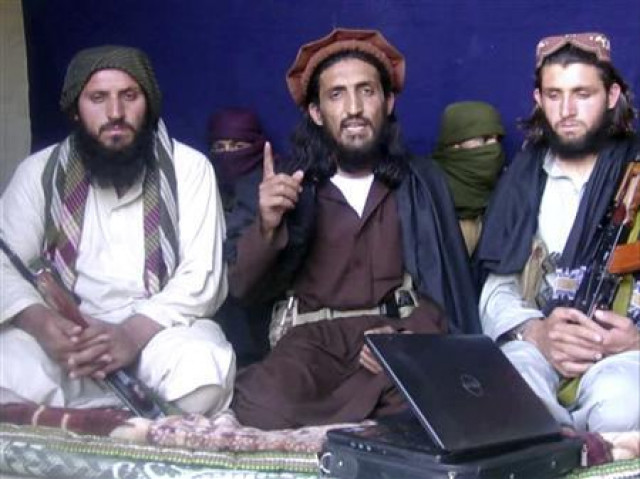Why are Pakistan's Taliban so dangerous?
The TTP is the main Pakistani militant alliance which operates from Pakistan's northwest.

Here are some questions and answers on the Tehrik-e-Taliban, or Taliban Movement of Pakistan (TTP).
Who are they and what is their aim?
The TTP is the main Pakistani militant alliance which operates from Pakistan's northwest.
It has strong links with al Qaeda as well as Punjabi groups and has been blamed for many of the suicide bombings across Pakistan.
The TTP has focused on trying to topple the US-backed government to impose its austere version of Islamic rule.
The TTP also has ambitions to attack Western targets abroad but has not proven capable of doing so. It claimed responsibility for the botched bombing in New York's Times Square in May 2010.
Why has the TTP survived so many army offensives?
The army has made advances against the TTP since it launched a series of offensives starting in Swat Valley in 2009 and extending to tribal agencies near the Afghan border.
The TTP has managed to regroup after moving its fighters around from one area to another when the heat is on.
It has retained the capacity to strike partly because alliances with other groups allow it to carry out suicide bombings even it is on the defensive.
Close ethnic and strategic ties with the Afghan Taliban across the border also help.
TTP leaders on the run can find safe havens there, reorganise and plot future attacks.
The ability of the TTP and other groups to penetrate the army, spy agencies and security forces means it can gather intelligence.
"They have friends in state institutions," said Ayesha Siddiqa, an expert on the Pakistani military. "That is where their strength is."
One example of that may have been the siege of the PNS Mehran naval base in Karachi in May. Analysts say it must have been an inside job.
Why have the Taliban been so active of late?
The TTP threatened to avenge the killing of Osama bin Laden on May 2 and attacked paramilitary cadets, a US consulate convoy, the navy base and other targets.
Analysts say these attacks had probably already been planned and the TTP decided itwas an opportune time to follow through.
In a sign of growing confidence, the Pakistani Taliban recently mounted a bold cross-border attack on a security checkpost which killed 27 Pakistani forces in the northwest.
The government said about 400 militants took part in the operation which triggered three days of fighting. It was the first such large-scale cross-border attack.
Analysts believe it was carried out by TTP leaders who had been pushed out of Swat and regrouped, including fiery cleric Maulvi Fazlullah, whose fighters at one point gained control of 70% of Swat, publicly whipping and executing people deemed immoral.
Can the government win?
Pakistan's military has been geared over decades to wage conventional warfare with rival India. It has yet to develop the counter-insurgency expertise needed to deal with the Taliban.
That will require better intelligence gathering to understand the complex ties between militant groups.
Killing a high-profile militant leader every once in a while is not enough.
"You have to think outside the box. It's a messy landscape that I don't think anybody has really mapped out in its entirety," said Kamran Bokhari, south Asia director and global intelligence firm STRATFOR.
"All they have to do is have a few sympathisers here and there and that works for them. But it takes a lot more for the state to get ahead of these people."
Like al Qaeda, the TTP can inspire smaller independent groups that carry out suicide bombings on its behalf. It didn't claim this week's suicide bombing at a bank in Islamabad which killed one person -- the first attack in the capital since December 2009.
A new campaign of violence in the capital would discredit the army and security forces and scare away foreign investors needed to strengthen the country's fragile economy.



















COMMENTS
Comments are moderated and generally will be posted if they are on-topic and not abusive.
For more information, please see our Comments FAQ